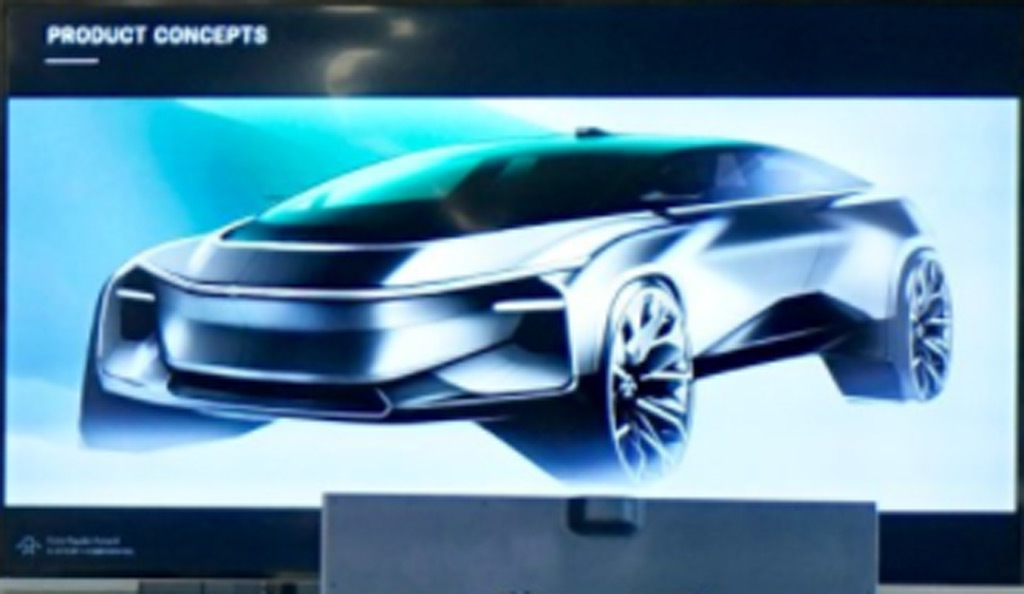Faraday Future on Wednesday announced a deal with South Korean company Myoung Shin concerning production of an electric crossover to be called the FF81.
We wouldn't blame you if you thought Faraday Future was well and truly dead, but the electric-vehicle startup is still kicking. It secured some fresh funding last year from Geely, as well as from a SPAC deal that saw shares in the company start trading on the Nasdaq.
Faraday Future's first model, the FF91 crossover, is expected to start production this fall. The FF81 is due to start production in 2024.
While the FF91 is planned to be built at Faraday Future's own plant in Hanford, California, with the first customer examples expected in the fall, the FF81, a teaser for which was shown as far back as 2018 (shown below), will be built under contract by Myoung Shin at a plant in Gunsan, South Korea. The plant, which was previously owned by General Motors, is currently used by Myoung Shin for production of components for other automakers.

Faraday Future previews future product during supplier meeting
Vehicles built in South Korea can be exported to the U.S. tariff free. It was reported last December that Geely may also build some Lynk & Co. vehicles in South Korea for local sale and potentially as exports to the U.S.
It's also been reported that Geely may build some Faraday Future vehicles in China for local sale. Faraday Future said on Wednesday it plans to build vehicles in China, but didn't mention a date.
In addition to the FF91 and FF81 crossovers, Faraday Future has also mentioned plans for an FF71 crossover. Unlike the FF91, which is expected to be a low-volume vehicle priced in the six figures, the FF81 and FF71 are described as “high-volume vehicles,” suggesting they will be relatively affordable.
“This agreement to produce the FF81 puts us on track to deliver on our promise to reach high volume production in 2024, the most important milestone on our path to profitability,” Carsten Breitfeld, Faraday Future's CEO, said in a statement.
